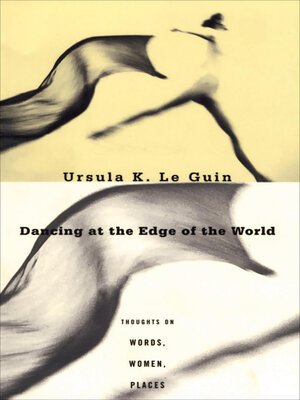
Sign up to save your library
With an OverDrive account, you can save your favorite libraries for at-a-glance information about availability. Find out more about OverDrive accounts.
Find this title in Libby, the library reading app by OverDrive.



Search for a digital library with this title
Title found at these libraries:
| Library Name | Distance |
|---|---|
| Loading... |
“Ursula Le Guin at her best . . . This is an important collection of eloquent, elegant pieces by one of our most acclaimed contemporary writers.” —Elizabeth Hand, The Washington Post Book World
“I have decided that the trouble with print is, it never changes its mind,” writes Ursula K. Le Guin in her introduction to Dancing at the Edge of the World. But she has, and here is the record of that change in the decade since the publication of her last nonfiction collection, The Language of the Night. And what a mind—strong, supple, disciplined, playful, ranging over the whole field of its concerns, from modern literature to menopause, from utopian thought to rodeos, with an eloquence, wit, and precision that makes for exhilarating reading.
“If you are tired of being able to predict what a writer will say next, if you are bored stiff with minimalism, if you want excess and risk and intelligence and pure orneriness, try Le Guin.” —Mary Mackey, San Francisco Chronicle
“I have decided that the trouble with print is, it never changes its mind,” writes Ursula K. Le Guin in her introduction to Dancing at the Edge of the World. But she has, and here is the record of that change in the decade since the publication of her last nonfiction collection, The Language of the Night. And what a mind—strong, supple, disciplined, playful, ranging over the whole field of its concerns, from modern literature to menopause, from utopian thought to rodeos, with an eloquence, wit, and precision that makes for exhilarating reading.
“If you are tired of being able to predict what a writer will say next, if you are bored stiff with minimalism, if you want excess and risk and intelligence and pure orneriness, try Le Guin.” —Mary Mackey, San Francisco Chronicle







